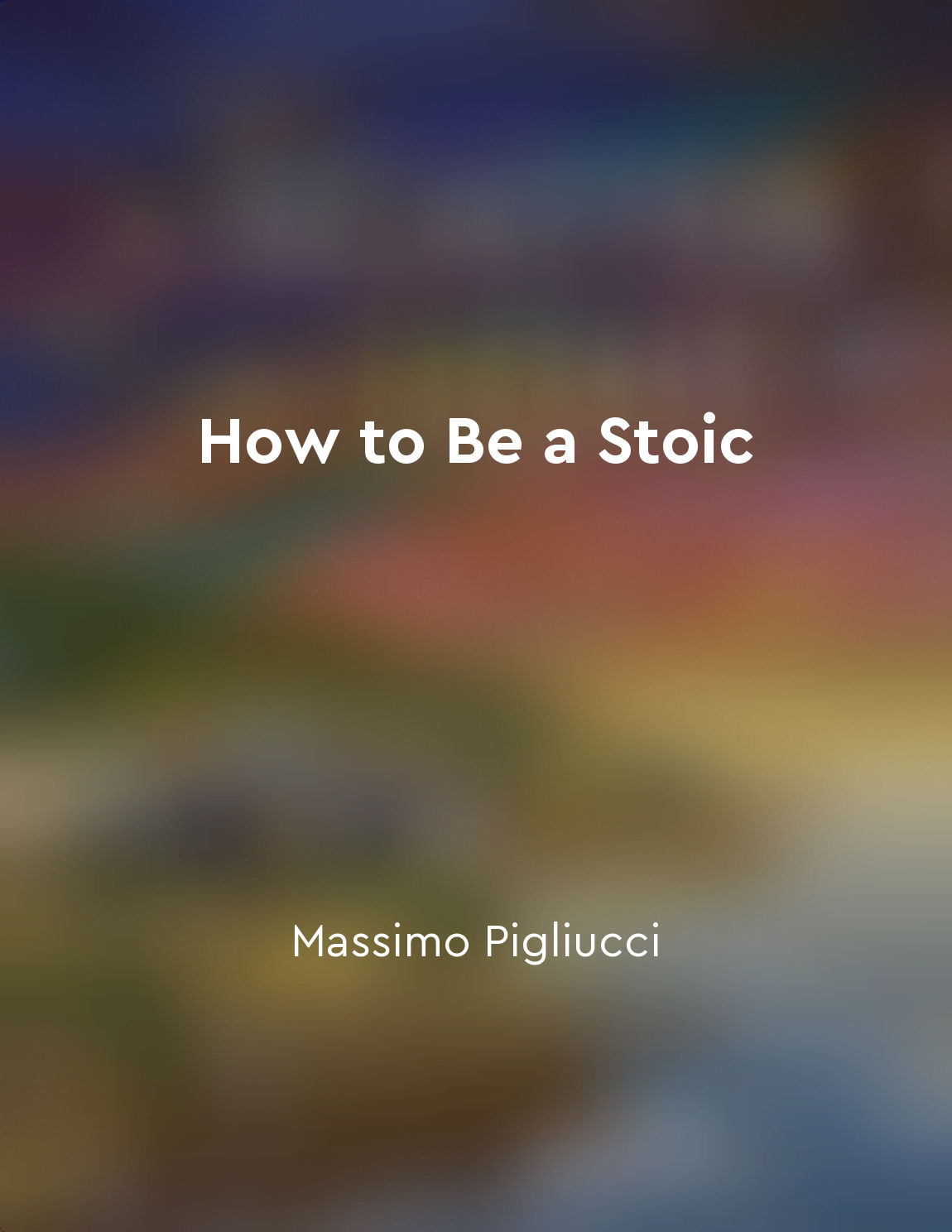Practice resilience in the face of adversity from "summary" of How to Be a Stoic by Massimo Pigliucci
The Stoics believed that adversity is an inevitable part of life, and that the key to dealing with it effectively is to cultivate resilience. Resilience, in this context, means the ability to bounce back from setbacks and challenges, to remain steadfast in the face of adversity, and to maintain a sense of inner calm and equanimity no matter what life throws at you. The Stoics understood that we cannot control external events, but we can control how we respond to them. By practicing resilience, we can learn to accept and even embrace adversity as an opportunity for growth and self-improvement. Rather than being overwhelmed by difficulties, we can use them as a chance to test and strengthen our character, and to become better, stronger people as a result. Resilience, according to the Stoics, is not about denying or suppressing our emotions in the face of adversity, but about acknowledging them and then choosing to respond to them in a rational and constructive way. It is about cultivating a sense of perspective and detachment, so that we can see challenges for what they are – temporary obstacles that can be overcome with patience, perseverance, and resilience. One of the key practices that the Stoics recommended for developing resilience is negative visualization – the practice of imagining the worst-case scenarios in order to prepare ourselves mentally and emotionally for them. By confronting our fears and anxieties head-on, we can rob them of their power over us, and develop the inner strength and resilience needed to face whatever life may bring. Another important aspect of practicing resilience is learning to distinguish between what is within our control and what is beyond it. By focusing our energy and attention on the things that we can influence – our thoughts, attitudes, and actions – and letting go of the things that are outside of our control, we can cultivate a sense of inner peace and resilience that is not dependent on external circumstances.- Practicing resilience in the face of adversity is about developing the mental and emotional strength needed to weather life's storms with grace and dignity. It is about learning to stand firm in the face of challenges, to remain calm and composed in the midst of chaos, and to emerge from difficult situations with our integrity and sense of self intact. By cultivating resilience in this way, we can become more resilient, resourceful, and resilient individuals who are better equipped to face life's challenges with courage and resilience.
Similar Posts
Stoicism was a practical philosophy for daily life
Stoicism was more than just a theoretical philosophy; it was a practical guide for how to live one's life. The Stoics believed ...
Embracing discomfort can lead to personal growth
The Stoics believe that discomfort can be a pathway to personal growth. They argue that by facing challenges and embracing disc...
Selfawareness is vital in managing emotions effectively
The Stoics emphasize the importance of self-awareness in the management of emotions. They believe that understanding one's own ...
Take responsibility for your own happiness
Taking responsibility for our own happiness is a fundamental aspect of living a fulfilled life. It requires acknowledging that ...

The Stoic life is a path to inner peace and fulfillment
The Stoic life is indeed a journey towards inner peace and fulfillment. It is a path that is not necessarily easy, but one that...
Practice humility and modesty
Humility and modesty are key virtues in Stoic philosophy, as they help us maintain a proper perspective on ourselves and our pl...
The romantic outlook celebrates passion and individuality
The romantic outlook, as expounded in Risinger's analysis, emphasizes the value of passion and individuality in human experienc...
The importance of seeking clarity and truth in all aspects of life
In the pursuit of a virtuous life, clarity and truth are essential guiding principles. Without clarity, we are lost in a fog of...
Stoicism emphasizes the power of reason
The Stoics believed that reason was the most powerful tool available to human beings. They thought that reason was the key to a...

Accepting things as they are is key to inner tranquility
The Stoics believed that one of the main sources of our mental suffering is our resistance to the way things are. They argued t...


